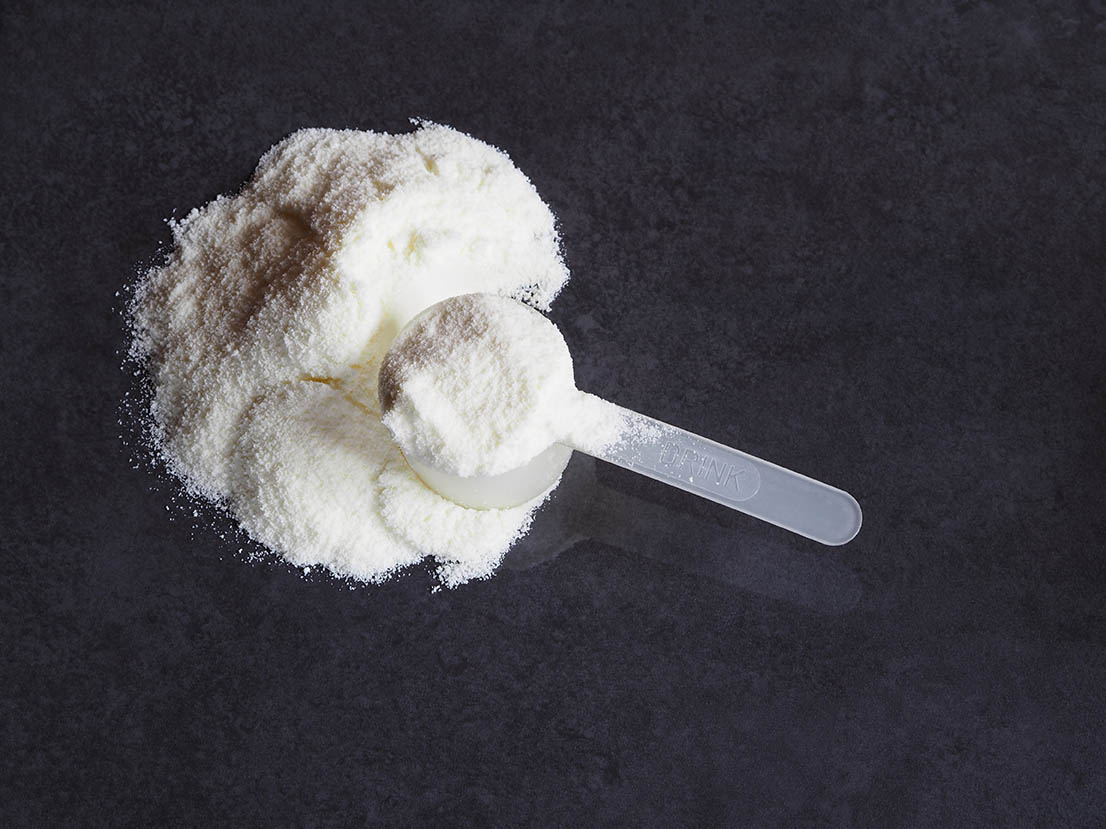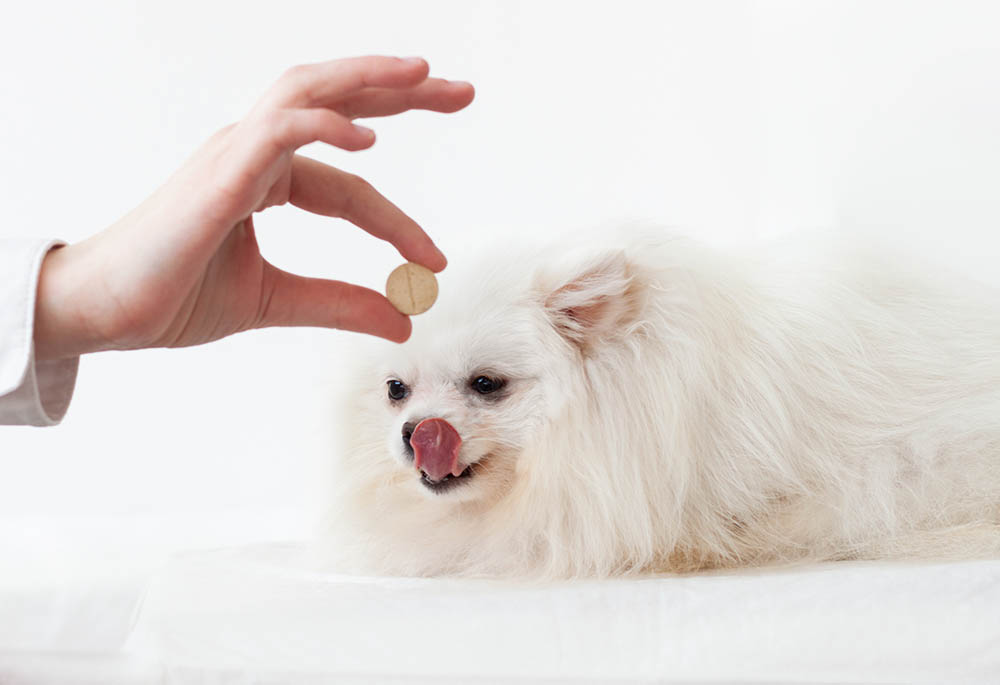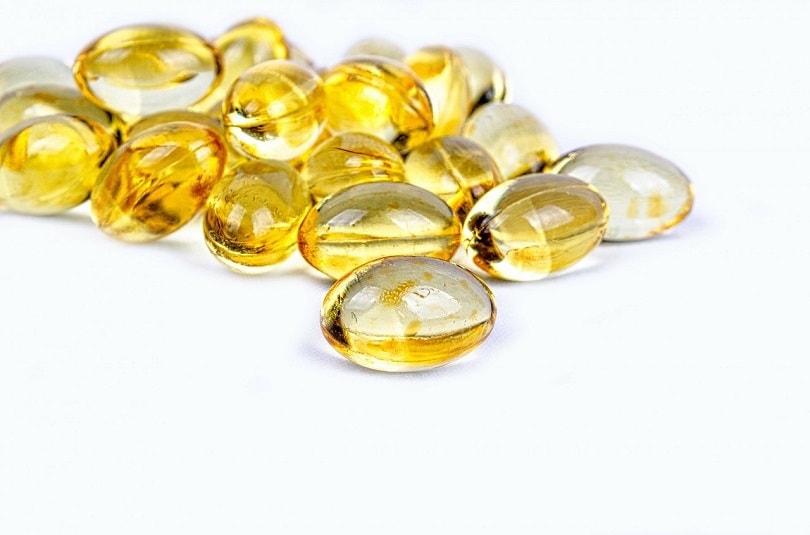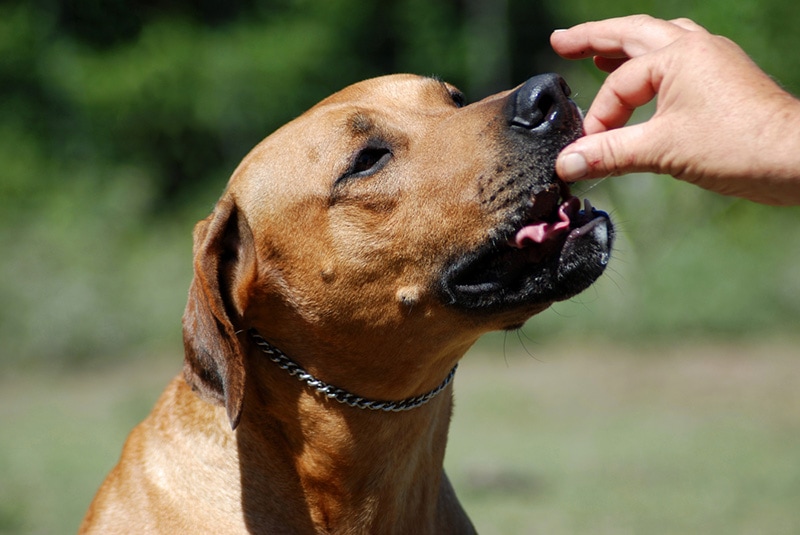
Just like us, dogs are prone to specific health issues throughout their lifetime. They also might have genetic conditions that cause joint problems from birth. No matter how a dog develops joint issues, you can offer a little dietary help to reduce inflammation, promote cellular regeneration, and decrease pain.
Certain foods and supplements can strengthen your dog’s joints, and providing nutritional support can reduce the overall signs. Let’s talk about what these are.
Joint Function in Dogs
Joint function is essential for mobility and locomotion. Puppies need to have strong joints to support their growing muscles. They get all the nutrients they need from their mother’s milk until they start on solids. Then, it’s up to caretakers to make sure they have adequate nutrition.
Large breeds must have specialized large-breed diets that promote a slower growth rate. If they have excess nutrients and inadequate levels of minerals during their peak growth points, they can have significant mobility issues later in life.

Which Dog Food Ingredients Are Essential for Joint Health?
Many commercial puppy food recipes fit the pup’s dietary needs, matching their breed size, age, and nutrition profile. When you select puppy chow, look for recipes that have the right content for the needs of each dog.
Likewise, adult and senior dogs with a tendency toward arthritis and even overweight dogs will need specific supplementation to support their joint health.
Though puppies and seniors require different nutrient levels, they do mimic each other. The difference is that puppy recipes are meant to build joints, while senior recipes are geared toward maintaining joint mobility, health, and function.
The exact amount of calories an individual animal needs to maintain a healthy weight is variable and influenced by many factors including genetics, age, breed, and activity level. This tool is meant to be used only as a guideline for healthy individuals and does not substitute veterinary advice
The 10 Food & Supplements for Healthy Joints in Dogs
Certain compounds feed your dog’s joints, decreasing inflammation, rebuilding tissue, and curbing degeneration. Here are 10 of the best things that you can add to your dog’s diet to improve or strengthen their mobility.
1. Glucosamine

Glucosamine is a natural compound that helps support and cushion joints and bones. It can be obtained from shellfish or prepared in the laboratory. When your dog takes it as a supplement, the glucosamine works by making glycoproteins and glycosaminoglycans, which are essential building blocks of many parts of the joints, including the ligaments, tendons, cartilage, and synovial fluid. The effect is both repairing and strengthening these areas.
It alleviates pain in problem areas, improving your dog’s overall sense of mobility. The success of glucosamine for joint repair is moderate, so it might have better results in some dogs rather than others.
Glucosamine is typically found in stores as chewable tablets, treats, and powders.
2. Turmeric

Turmeric is such a common household spice that you might already have it in your cabinets. However, if you feed it to your dog in their regular diet, you should buy a turmeric supplement for the full effect, as spice powder is not as effective.
Turmeric is a flowering plant in the ginger family. It contains a compound called curcumin. This is a fat-soluble antioxidant with sensational anti-inflammatory properties. Concentrated curcumin can lessen inflammation in your dog’s joints, leading to healthy cartilage function.
You can find turmeric curcumin in many specially formulated dog treats, chews, and other supplements.
- Related Read: 4 Benefits of Turmeric for Dogs (Based on Science)
3. Eggshell Membrane

You will stop throwing away your eggshells after you learn that the thin membrane right under the eggshell is a great supplement for your dog’s healthy joints. The eggshell membrane contains glycosaminoglycans and is a natural source of combined glucosamine, chondroitin, and hyaluronic acid. All these nutrients together help your pup (and you) maintain healthy cartilage and synovial fluid, greatly improving joint health.
We suggest that you purchase only in-shell pasteurized eggs, so you can feed the membranes directly to your dog without any concern about potential bacterial infections.
4. Vitamin C

Vitamin C is a powerful antioxidant that aids in several areas of health. We all know about its incredible immunity-boosting benefits, but it’s also an anti-inflammatory antioxidant that soothes any joint irritation. Collagen is a protein found in muscles and joints. Vitamin C acts as a collagen synthesis, which forms proper joint cartilage.
Adding vitamin C to your dog’s daily routine will boost their energy and reduce joint pain. Just be mindful of appropriate dosing. Healthy dogs don’t need vitamin C (as their bodies make their own), but recent research suggests that vitamin C is depleted in stressed or diseased dogs, so they might greatly benefit from the supplementation.
5. Fish Oil

Fish oil is packed full of healthy omega fatty acids. These acids are natural anti-inflammatories that protect joint tissue. Studies have shown improvements in osteoarthritic dogs supplemented with fish oil. Many commercial dog food recipes contain fish oil to help with this very issue. It also keeps the skin and coat shiny and healthy.
You can introduce more fish oil to your dog’s daily diet through supplements or concentrated oils to add to their existing meals.
6. Chondroitin

Chondroitin is similar to glucosamine because your dog will take it the same way, and it will have a similar effect. Chondroitin is known to prevent cartilage from breaking down and stimulate cartilage repair mechanisms. Since it reduces pain, your dog can be more active, exercising their joints and muscles.
This compound is best used as an injury preventive. So, if you notice that your dog is suffering from a bit of inflammation, adding this to their diet will increase mobility and prevent damage.
You can find supplements containing high amounts of chondroitin designed to soothe joints. However, it’s most effective as an injectable shot from your veterinarian.
7. Sweet Potato

Sweet potato is a nutrient-rich root plant that will do your dog’s body good. It has multiple health benefits for your dog, including optimal joint support.
Sweet potatoes contain a large amount of beta-cryptoxanthin, which prevents joint inflammation from starting. These spuds are full of fiber, helping with smooth digestion, so your pet isn’t bound up.
If you offer sweet potato to your dog, make sure it is fully peeled and cooked. You can mash it up and top their kibble with it or let them enjoy it as a standalone snack. Never feed raw sweet potatoes to your dog.
8. Ginger

Ginger is a common root used in many medicinal forms. Since it is loaded with antioxidants, it fights disease. It’s an excellent counteractant for nausea and a natural anti-inflammatory.
It also promotes healthy aging, which includes full joint support. Ginger extracts and topical treatments can soothe the onset of arthritis in dogs too.
Ginger is typically available in liquid and solid form, so you can administer it to your dog the best way that they can take it.
9. Blueberry

Blueberries are ideal fruits to add to your dog’s diet. These little berries have many nutritional perks that don’t just end at joint support. Raw blueberries will reap the most reward, but there are also dietary supplements that your dog can take for mobility, with blueberries as the main ingredient.
Blueberries are small, easy to chew, and packed with powerful antioxidants to keep your dog feeling healthy, protecting against cell damage. You can give your dog a handful of berries in their kibble or use them as motivational snacks. Always wash the berries to reduce chemical exposure.
10. Celery

This surprisingly savory stalk vegetable is an extremely healthy water-based vegetable that decreases joint inflammation. You can offer this veggie to your dogs as a crispy snack with great benefits.
Celery contains polysaccharides and antioxidants proven to decrease pain and pressure in joints. It also includes a component called luteolin, which is an anti-inflammatory antioxidant.
You can give your dog raw slices of celery, but the seeds are much more potent for optimal results. Always make sure to chop the celery into thin pieces or strip it of the threads, since these can be a choking hazard.
What Causes Joint Problems in Dogs?
Dogs have athletic builds that are made for physical activity. That said, some dogs are more content snoring on the sofa. Lifestyle, exercise, and genetics all play a role in the way that your dog’s body ages.
There are two types of joint issues seen in dogs: degenerative and developmental. Degenerative joint issues are slow loss of mobility and strength over time. Developmental joint issues happen when the joints do not form as they should during growth.
While most degenerative problems develop due to age, some joint issues can start from puppyhood. Regular vet visits can keep your dog healthy, ensuring proper weight and diet for their life stage.
Here are a few of the factors that can determine joint issues.
Obesity
When dogs gain weight excessively, it puts unnecessary pressure on their bones and joints. They’re carrying an abnormally high amount of weight, which causes all sorts of strain (not to mention the difficulty that it causes for their organs).

Breed Size
Large and giant dog breeds tend to have joint issues because of their massive size. For instance, hip and elbow dysplasia is prominent in breeds like German Shepherds, Newfoundlands, and St. Bernards.
Rapidly increasing size and weight can cause issues in several breeds, which is why the puppy years are so important. Some joint conditions can be genetic, but lifestyle factors can influence others.
Breed Genetics
Certain dogs are prone to certain health conditions that can lead to severe joint problems. With appropriate breeding, healthy puppies can avoid many genetic joint disorders.
But with the possibility of accidental or backyard breeding, puppies might not have the same health guarantees. That is why it’s so vital to pick reputable breeders or properly evaluated dogs before you buy—you never know what problems might pop up for your poor pup.
Age
As our dogs age over the years, their bodies feel the effects. Aging causes a natural bodily deterioration, which is why it’s so important to keep up with any difficulties that they might face. Older dogs tend to develop painful joint conditions like arthritis.
While the decline is inevitable, it doesn’t have to be as hard on your dog. If you follow a few tips for optimal joint health, you can make the golden years a cakewalk for your furry pal.
Top 5 Tips to Help Dog Joints
You can help your dog maintain excellent joints as they age. Although diet plays a crucial role in joint health, it doesn’t stop there. Here are five tips to help you keep your dog moving with ease.
1. Give Your Dog the Proper Nutrition.
Don’t wait until your dog starts developing joint problems to get them on the right track. Make sure their primary diet always covers their nutritional profile needs. Then, you can offer extra beneficial goodies at meal and snack time. Since different dogs vary in size and energy levels, there is no one-size-fits-all menu, so vary your portions according to your dog’s size.
You should select high-quality fresh food, dry kibble, or wet food with all the good stuff—and without harmful fillers or artificial preservatives. Don’t be afraid to do your research or ask your vet for recommendations on diet options. Each breed might require certain commercial foods over others.
Click Here to Save 50% with Ollie at Ollie Fresh Dog Food
2. Keep Your Dog at an Ideal Weight for Their Size.
Extra weight can cause strain on the body, which can inflame joints. Always feed your dog appropriate calories for the day, despite how much they might beg for more. Limit snacks too. It might be easy to toss a milk bone their way every time they do a good deed, but too many treats equal extra pounds.
If you find that your adult dog isn’t satisfied with a twice-a-day feeding, you can split their rations into three smaller meals. That way, you can keep them on a better feeding schedule throughout the day, and they won’t have as many hunger pangs.
3. Make Sure Your Dog Gets Plenty of Exercise.
Exercise does fantastic things for your pup. It strengthens joints, tendons, ligaments, and muscles, keeping the body functioning as it should. Even if your dog is having a bit of trouble getting around, you should still make sure to walk and enjoy fun activities with them.
It’s always a good idea to check with your vet to get a good exercise plan in place. With specific onset conditions, certain dogs might have exercise restrictions. Swimming is a great exercise option for arthritic dogs.
4. Accommodate Dogs With Mobility Issues.
If your dog has a joint problem of some form, make life a little easier for them. Make beds, doors, and food bowls easily accessible. Don’t allow them to engage in rough play. Take leisurely, short walks. Try to make your living space comfortable and secure.
The more you can do to make your dog cozy, the better their bodies will respond. If you can, ensure that your dog’s bed is orthopedic, so they get full support during rest.
5. Offer Body Massages Often.
Your dog’s muscles harbor tension, just like ours. Massaging your dogs will promote healthy circulation, nourish soft tissues, and increase musculoskeletal function.
You can perform basic massage techniques at home, or you can take them to a professional doggy masseuse. It will leave your buddy feeling refreshed.
- This dog breed might interest you: Alapaha Blue Blood Bulldog
Final Thoughts
Now you can understand why joint health is so essential to our pups—joints are the hinges holding everything together. Your dog deserves to live an active lifestyle as long as they can. By supplementing your dog’s diet with joint-friendly foods, you are laying nutritional blocks for the future.
If you have any questions or concerns regarding joint health in dogs, don’t hesitate to reach out to your veterinarian. Nothing replaces professional medical advice.
- You may also want to read: How Much Does Dog Patellar Luxation Surgery Cost?
Featured Image: Jaromir Chalabala, Shutterstock










